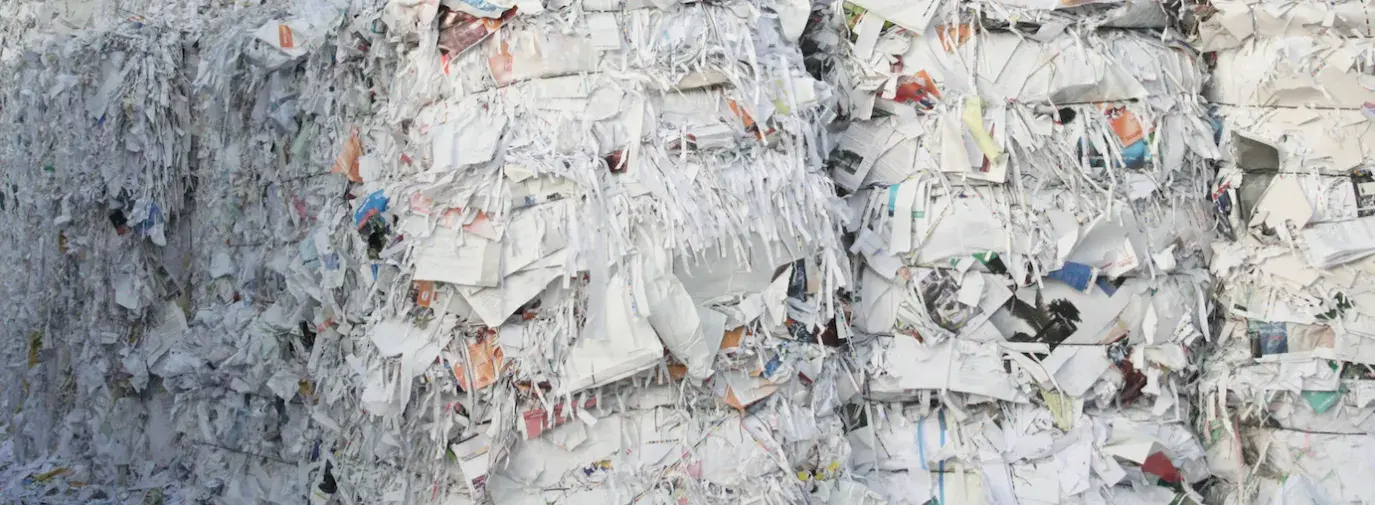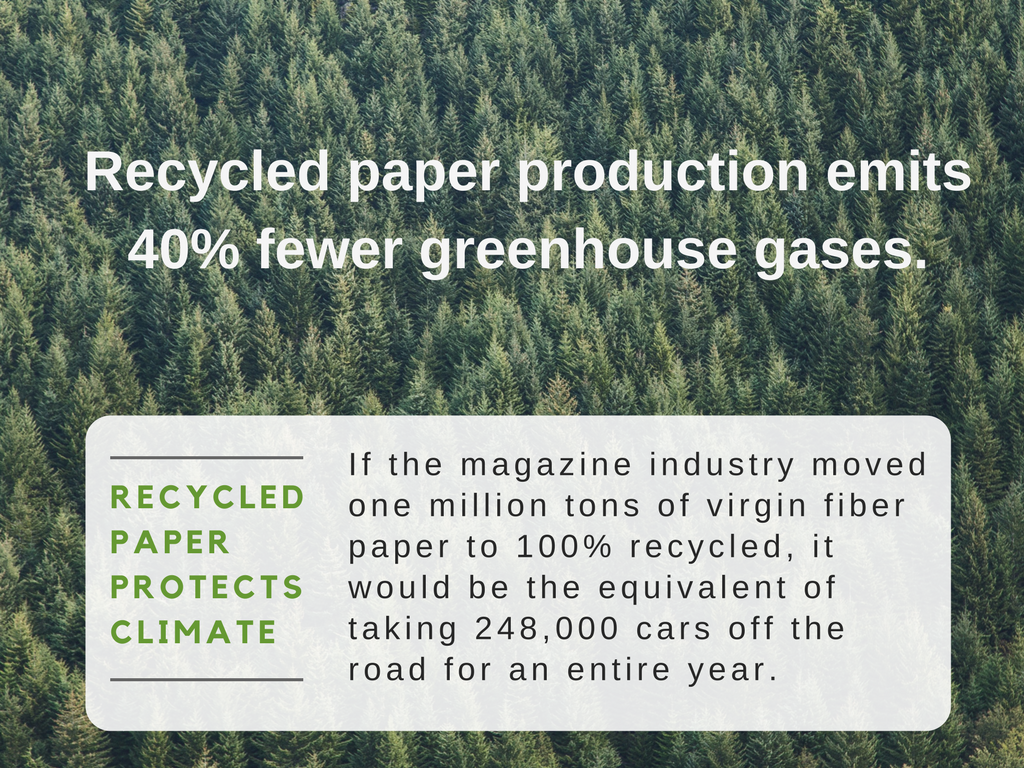
Making the case for recycled paper
From protecting forests to curbing climate, recycled paper use is essential for sustainability. With the below reports produced by Green America and our allied organizations, we make the case for using recycled paper, including the many ways it benefits the environment. We also share how you can better your recycling practices at home and work to help the entire system.

How does using recycled paper help the environment and climate?
Recycled paper use saves resources and reduces the paper industry's impact on the planet.
Using 100% recycled copy paper instead of 100% virgin fiber paper saves:
- 100% of the trees,
- 31% of the energy,
- 53% of the water, and produces
- 39% less solid waste.
Read more about the benefits of recycled paper from the Environmental Paper Network...
If you don't recycle your used paper and instead throw it into the trash, it goes where all trash goes -- to the landfill. The EPA cites landfills as the single largest source of methane emissions to the atmosphere, and has identified the decomposition of paper as among the most significant sources of landfill methane. A potent gas with 21 times the heat-trapping power of CO2, methane is a major contributor to global climate change.
Find the answers to all your recycled paper questions in Environmental Defense's Q&A sheet...
How can publishers make a difference?
In the United States we use enough paper in a single day to fill the 838 miles of the Library of Congress nearly FIVE times. By using recycled fiber paper, publishers can ensure that existing paper gets a longer life. By reducing your paper usage and choosing recycled paper for what you do buy, you can lessen your environmental footprint.
Esker shows more jaw-dropping comparisons to our paper use here...
Too often, publishers are told that recycled paper is not the best environmental choice for their magazines. This only makes sense if there is a scarcity of recovered paper and we are forced to allocate our limited supply to only certain paper grades, however there are millions of tons of paper that we could be collecting for reuse. Printing and writing papers have the most intensive manufacturing process of nearly all paper types. Including recycled content in magazine-grade paper has a very significant and important role in reducing environmental impacts of paper production.
Read more in our Green in All Grades report...
We are helping universities use recycled paper for their alumni magazines in our One Million Trees campaign. We are collecting stories from universities already using better paper, including Washington State University. "Moving to 100% recycled stock was daunting at first, but we couldn't be more pleased with the outcome of our magazine on recycled paper."
Read our interview with Washington State University Alumni Magazine on their switch...

How can you help?
Have you added these tips into your recycling practices? These are especially important to do if your city uses single stream (co-mingled) recycling bins.
Check these Tips for Using the Blue Bin...
When considering a new paper or wood product for purchase, the best way to help is to first think through the original R's: reduce and reuse (they come before recycle!). Make sure that you truly need this product and if you do, then look for products made with recycled content.
Learn how to spot better paper products here...






